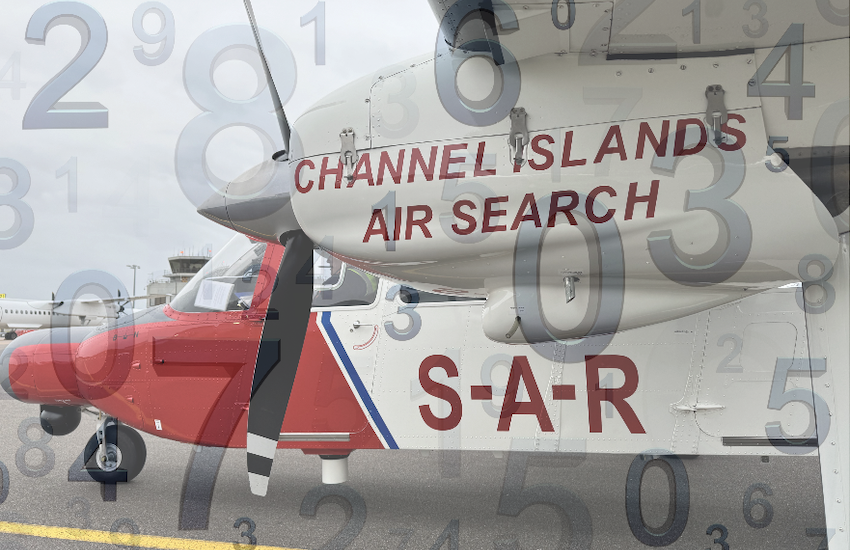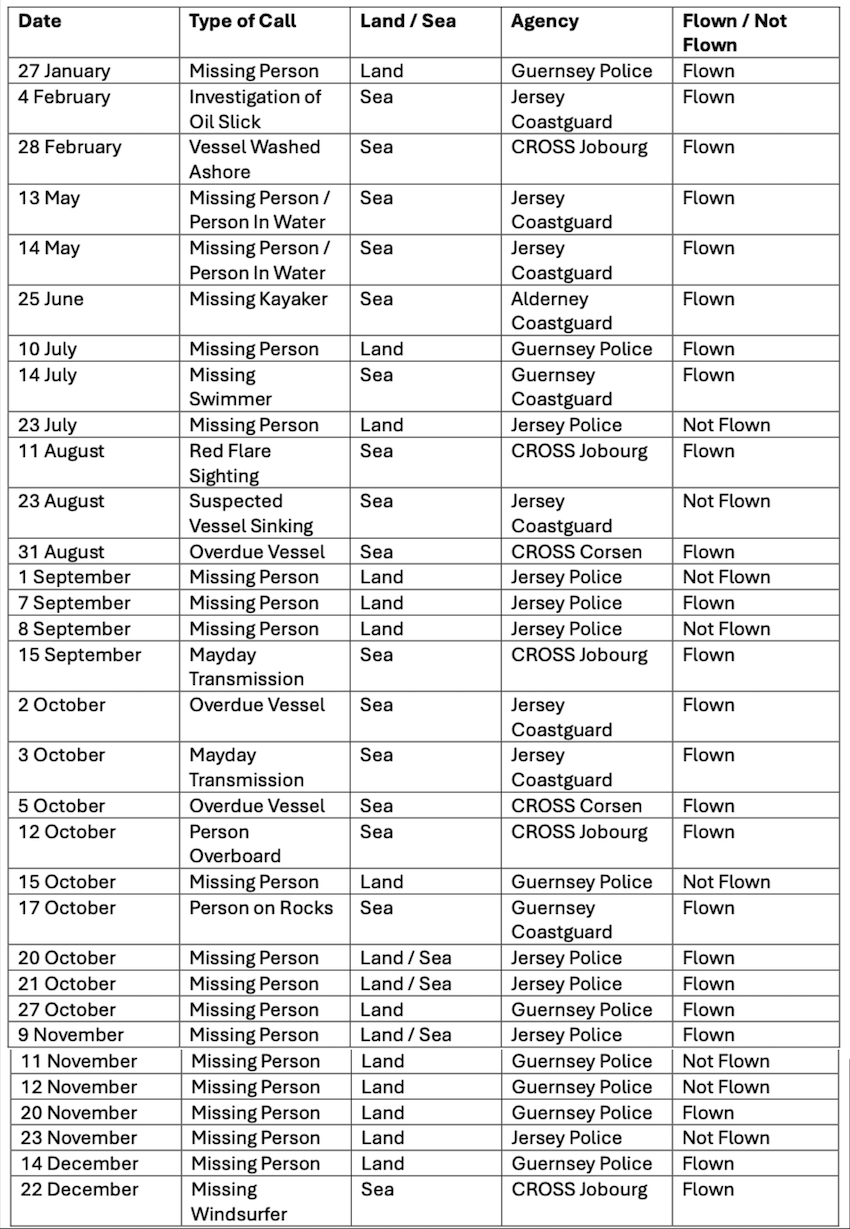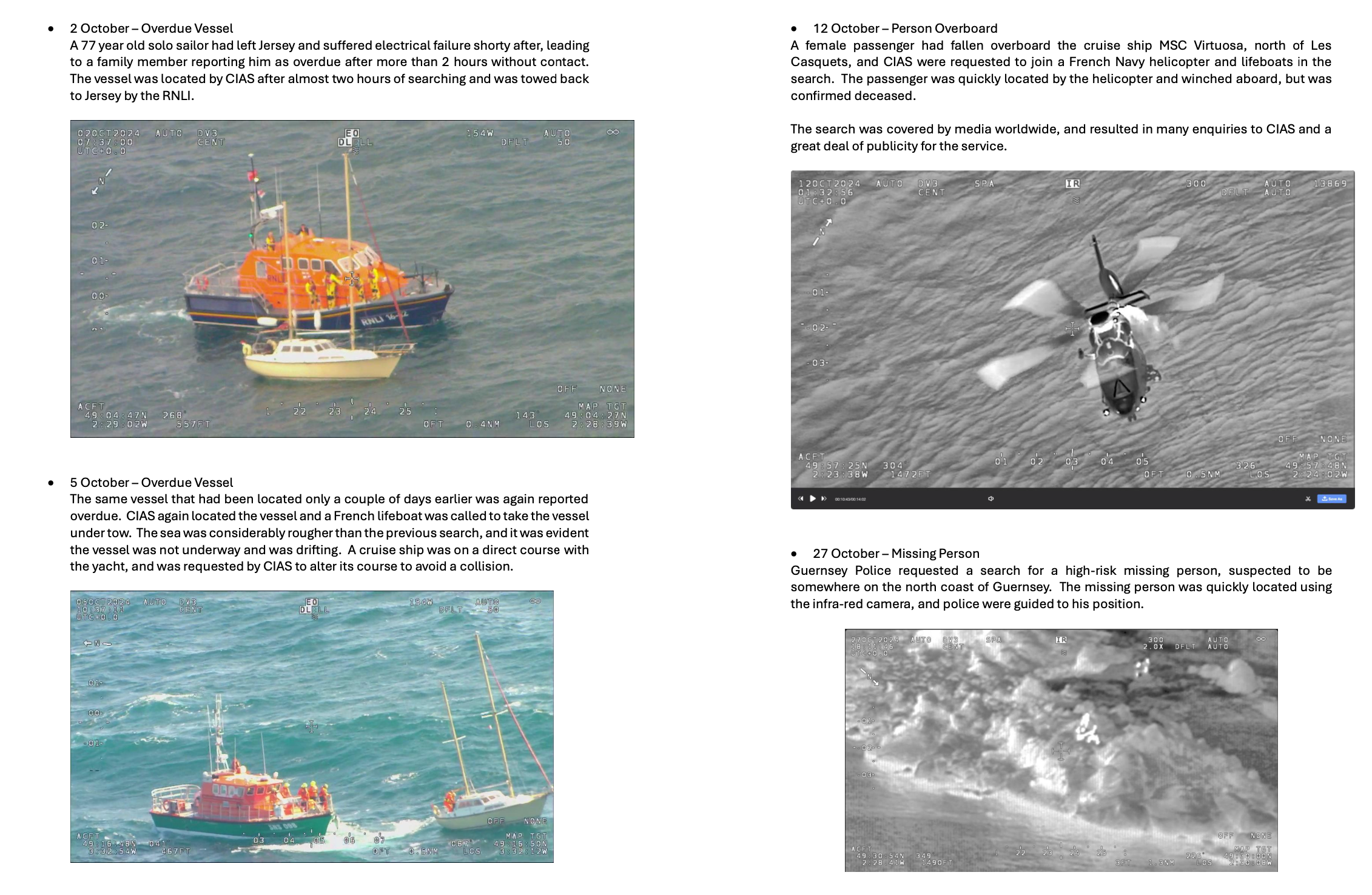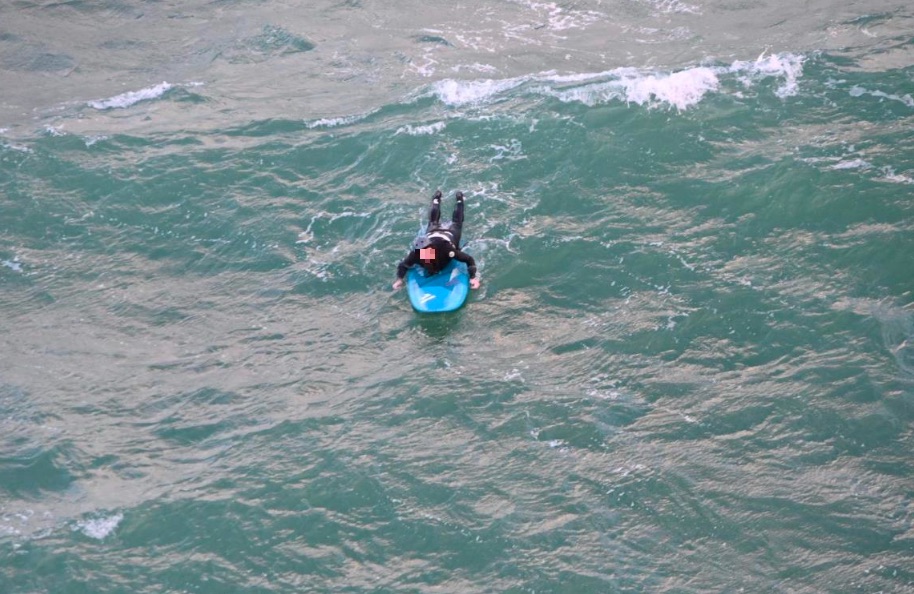


With the publication of its Annual Report for 2024, we've been able to pull out some statistics to see exactly what work the volunteer crew of the Channel Islands Air Search do.
With 32 callouts during 2024 - double the number received during 2023 - it means the crew and support team were called upon for help on average once every 11.4 days.
16 of the callouts were partially or fully land based, with 19 including or fully based at sea.
The calls for help came from a variety of sources including coastguards and emergency services across and near to the Channel Islands.
Of the 32 calls for help received during 2024 the CIAS crew were stood down before take-off on eight occasions.
This often happens when a casualty has been located prior to the Lion's Pride taking off from Guernsey Airport, but on one occasion during 2024 the aircraft was unable to take off immediately due to planned overnight aerodrome maintenance.
The maintenance meant that a two-hour notice period was required before the CIAS could take off. Throughout the maintenance period only this one search was affected.
The missing person was located within the two-hour notice period and although the maintenance crew had been notified that CIAS needed to depart, the crew were stood down before that time arrived.

Pictured: The charity said notable operations during 2024 included locating a missing solo sailor and assisting in a high-profile search for a cruise ship passenger.
The CIAS said its average search time on the 24 occasions the Lion's Pride did take to the sky during 2024 was just over two hours.
Calls for service ranged from missing persons on land and persons in the water to overdue vessels. Just over 50% of the callouts related to a missing person on land, where there was concern for welfare.
The overall number of marine and land based searches were split 50/50 although three calls included elements of both.
28% of all callouts were made between the hours of 21:00 and 07:30.
Callouts were made on average once every 11.4 days but in reality the number of searches intensified during September and October with the charity receiving 40% of all of 2024's calls for help during those two months.
With the exception of March and April, the service was called on every month.
The CIAS aircraft is based in Guernsey but it responds to calls for help across 4,000 square miles covering the Channel Islands and other nearby regions.
During 2024, 14 of the 32 callouts originated in Jersey, nine in Guernsey, and one in Alderney.
Five callouts came from CROSS Jobourg and two came from CROSS Corsen.

Pictured: Some examples of the work carried out by CIAS covered in its 2024 annual report.
The CROSS Jobourg area is to the north east of the Channel Islands, around Cherbourg and Cap de la Hague, while CROSS Corsen is to the south west of our islands covering the coastal areas near Brest.
In addition to the 32 calls for service, the CIAS crew also took part in 56 flight exercises during 2024.
These including monthly ground training sessions, and numerous fundraising events and presentations, including hangar visits.
Crew members are required to maintain currency by flying three times in a rolling 90-day period, with regular training flights undertaken to maintain their vital skills.
The crew also took part in a large scale exercise during the year, working with the Jersey Coastguard and CROSS Jobourg in June to assist following a mock collision between two vessels.
The Lion's Pride was tasked with searching for a casualty as part of the staged incident, testing the way in which the CIAS, Jersey RNLI, Jersey Independent Lifeboat, Jersey Coastguard, French lifeboats and CROSS Jobourg and the French Navy helicopter all work together.
The exercise was "a great success and helped cement working relationships between all parties," said the CIAS.
Also in June, Guernsey Coastguard requested assistance with an exercise to test its new drift modelling software, which it had used to calculate the drift of a large deceased whale.

Pictured: The final callout during 2024 saw CIAS help locate a missing windsurfer.
In addition to the exercises, and training flights, crew members also attended regular ground training sessions and some members renewed or obtained their Ground Security Operative certification.
The Channel Islands Air Search crew is currently made up of 20 personnel including pilots, search directors, and observers.
Each of these crew members are volunteers, and between them they collectively gave more 2,050 hours of voluntary service during 2024.
This time included emergency callouts, exercises, and training. They also helped with fundraising via open days, presentations, and more.
On all but one of the 24 occasions that the Lion's Pride took off from Guernsey Airport during 2024 the crew were able to return. On that one occasion where they couldn't return due to fog the crew stayed in Jersey overnight.

Pictured: CIAS is led by Accountable Manager John Fitzgerald (l) while David Hugo is in charge of fundraising (r).
Channel Islands Air Search said it "remains extremely grateful to the employers of its crew members for allowing them to leave work and respond to emergency call-outs. Without that support, the service would simply not be able to operate."
While the crew complement is considered "sufficient" at present, the CIAS said it is "always keen to hear from those who may be interested in volunteering, in whatever capacity is best suited to that individual, whether that be as operational crew or fundraisers".
The CIAS needs to raise a minimum of £300,000 per annum to meet its essential running costs.
The charity said "fund raising remains a challenge as there is a trend for large corporate donations to be steered towards wellbeing and sustainability projects, as well as those suffering from the cost of living crisis rather than running costs for charities such as ours".
However, the efforts of Fundraising lead David Hugo and his team in Guernsey, and the recently re-vitalised Jersey fundraising team are "vital and very much appreciated by the crew and trustees" said the charity.
In particular the CIAS thanked The Lions Clubs of Guernsey and Jersey which "continue to provide valuable financial support".
During 2024, this included the donation of five new survival suits costing in the region of £1,600 each.
Of the £300,000 annual running costs, it is no surprise that engineering expenses are one of the CIAS major outgoings each year.
The charity said that "having the ability to perform the majority of engineering works in our own hangar has provided considerable cost benefit to the service, with aircraft downtime kept to an absolute minimum".
Luckily, 2024 saw "no unexpected engineering input required" and "all planned maintenance was carried out within expected timescales".
We can predict some future costs the CIAS will have to shoulder though.
Pictured: The Lion's Pride (Rob Le Page).
The charity plans to replace the current Koden marine radar with a solid state Furuno unit, install a fixed Tetra radio and update the mission management software, CarteNav.
The current Koden radar unit is said to be "dated" and "provides very limited information". The proposed Furuno unit is "compatible with the new search mapping software" and "provides information that is integrated into the mapping software, rather than using a separate screen".
CIAS said the hardware itself is "relatively inexpensive", but the approvals and design work to install it is estimated at around £15,000.
An aircraft Tetra radio would be "an upgrade from the current system of using a handheld radio and connecting to the aircraft headset by bluetooth". The costs to upgrade this are expected to be in the region of £7,500 to £10,000 including installation.
The current version of CarteNav being used by CIAS is more than five years old, and the newest version has "more capability and can integrate with the direction finding equipment, which saves the operator having to switch between different screens". This software is in the region of USD 77,000.
CIAS has already been called out at least once during 2025.
On 6 January, two people needed to be rescued from an upturned dinghy.
The crew were stood down before takeoff but the work had already begun to get the Lion's Pride up in the air.
The charity said its intention for the rest of 2025 is the same as every year since it was founded: to operate a 24-hour a day, 365-day a year service, offering a rapid response search capability in the 4,000 square miles of water surrounding the Channel Islands and the adjacent French coast.
While the CIAS is supported by thousands of people across the Channel Islands, it can also count on the support of at least one member of the British Royal Family.
The Prince of Wales recently wrote to the charity to praise the "extraordinary professionalism" and "commitment" of those involved.
Prince William wrote that he had "recently heard about the vital work" carried out by the CIAS.
His Royal Highness - who has previously worked as a Search and Rescue pilot himself - said "it is amazing what you collectively achieve each year".
Channel Islands Air Search praised in letter from Prince William
CI Air Search in hunt for windsurfer who survived night at sea
CI Air Search callouts surge this autumn
Comments
Comments on this story express the views of the commentator only, not Bailiwick Publishing. We are unable to guarantee the accuracy of any of those comments.